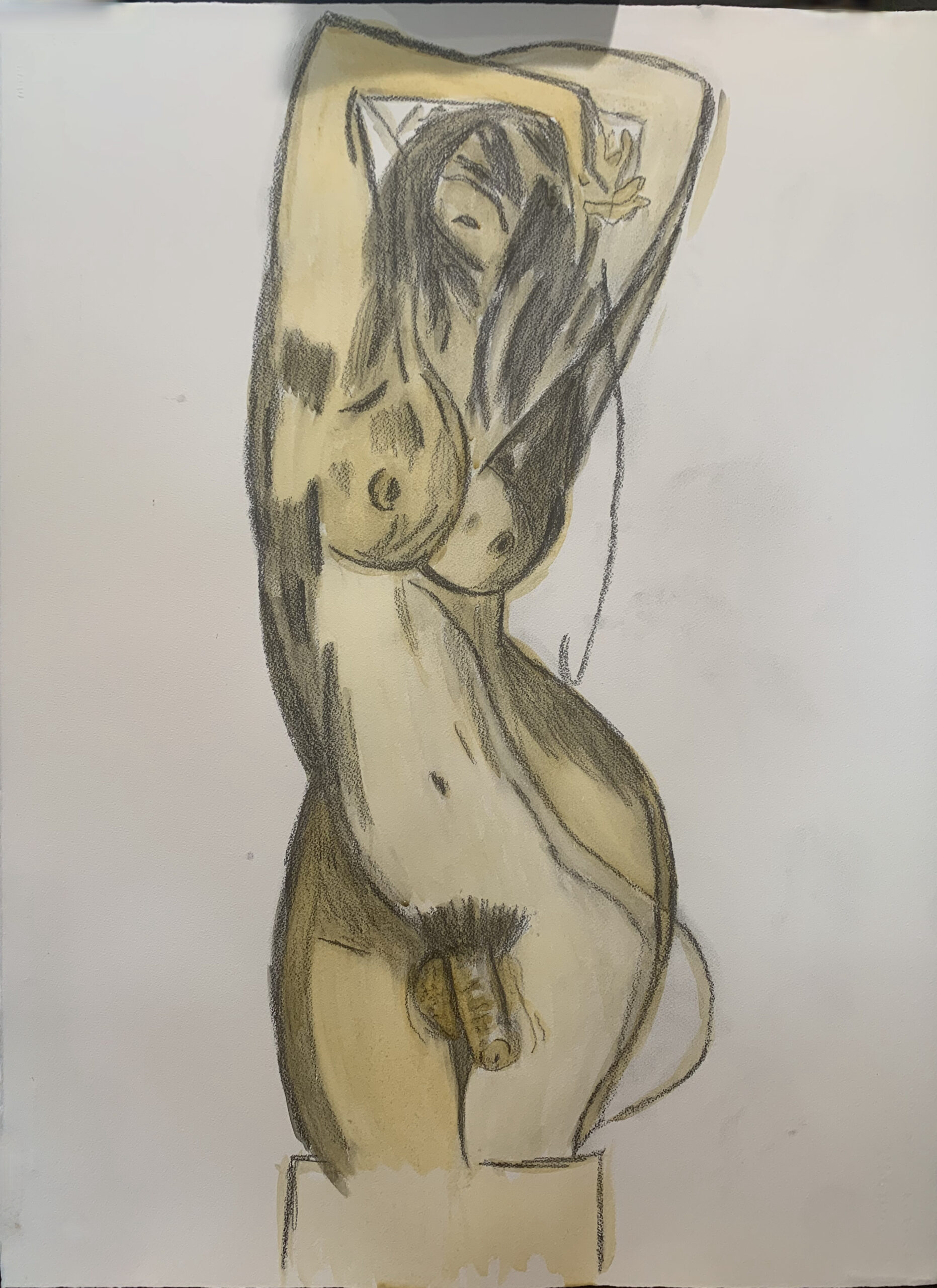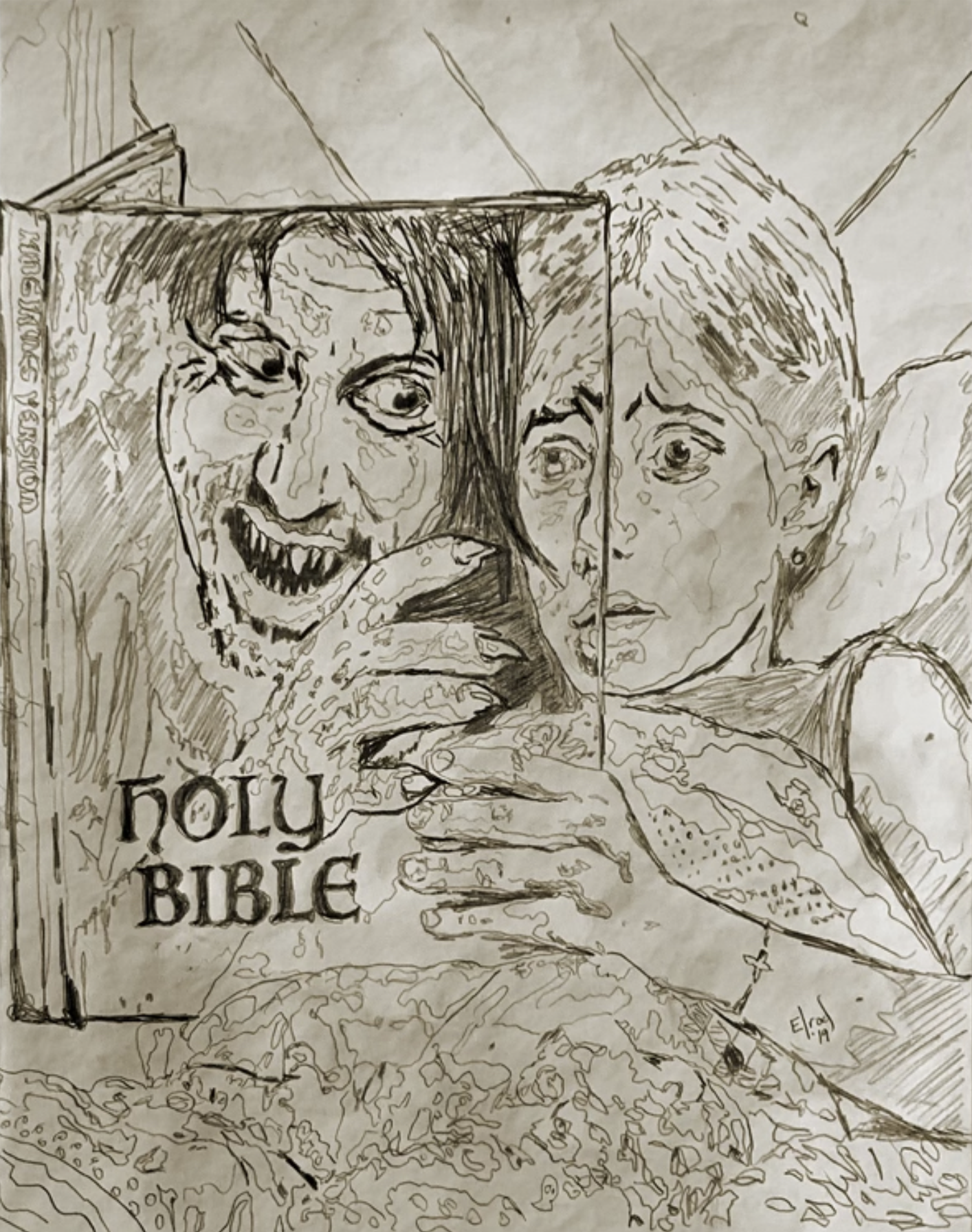I am trying to remember how I discovered Robert Heinlein’s books. I may have picked them up while working as an aide in my public school library in the 5th or 6th grade or, more likely, at Goodwill, where Mom would take us to buy second-hand books. Thanks to a minister father, I was raised under the tyranny of Christian virtue. We were not allowed (or could not afford) television. One of life’s great ironies is that Dad now has a television in every room of the house.
So, I took solace in books. This acne-covered geek would retreat to the solitude of my room for days with a paper bag full of tattered and musky paperbacks—mostly science fiction: Asimov, Clarke, Bradbury, Verne, Orwell, Vonnegut, Doyle, Huxley, Burroughs, Norton, and more.
Then, one day, I began reading Stranger in a Strange Land. I had never encountered anything like it, and feelings I could not understand came over me.
My mother had never skimmed my books for questionable content. But one day, while cleaning my room, she found the well-worn Heinlein tome, and the avid reader she was, began reading it before I returned home from elementary school. My Dad would have spanked me and burned the book, but Mom handed me the book and said softly, “I’m not sure you should be reading books like that.” And that was the last that was said about it.
Therefore, at age 11, in the privacy of my room, I read and reread as many erotic scenes as I could find, including a passage from Heinlein’s I Will Fear No Evil where, in very erotic detail, Yo-an (a nubile young woman who was formerly a lecherous, very old male billionaire) used the classic and infamous Anglo-Saxon verb, thanking her doctor Roberto for graphic acts of sex in which they have engaged.
Stranger in a Strange Land was the first book that shook this highly impressionable reader into thinking outside my censored box about taboo religious and sexual ideas. I did not know the words pornography and erotica, but I did have feelings—very intense feelings—and they felt right to me. Heinlein was the first and most powerful guiding light (my nurturer) to physical sensuality. He awakened my sense of the erotic.
To paraphrase Audre Lorde’s poetic words, the very word erotic comes from the Greek word eros, the personification of love in all its aspects—personifying creative power and harmony. The erotic is an assertion of the life force of humanity, of creative energy empowered, which some of us are now reclaiming in our art, history, dancing, loving, work, and lives. There is a distinction between pornography (sensation without feeling) and erotic (sensation with feeling).
(A side note: Despite culture’s frequent attempts to equate pornography and eroticism, they are different uses of the sensual. More on that in a future post.)
Religion has attempted to separate the spiritual and the erotic, reducing the spiritual to a world of unhealthy emotion, a world of the fundamentalist who preaches guilt and shame. But nothing is farther from the truth. The cultist position is one of extreme fear, that emotion which is the least spiritual. The severe abstinence of the religious zealot becomes the ruling obsession. It is not about self-discipline but about self-denial.
Although religion did not castrate my sensuality, it did suppress it for decades. I was taught (and required) to sacrifice my true self (my deepest feelings) on the altar of self-denial. Fortunately, as I approached age fifty, I began questioning the suppressive teachings of my first half of life and rediscovering writers like Heinlein. I started to FEEL again—to feel excitement and enjoyment rather than shame and guilt.
Today, I strongly relate to Lorde’s writings. My awakened erotic functions for me in several ways, and the first is the satisfaction that comes from sharing deeply any pursuit with a trusted companion. Sharing physical, mental, emotional, and spiritual joy forms a bridge between the sharers. It lessens the distance of their difference. To be utilized, our erotic feelings must be recognized. The need for sharing deep feelings is a human need.
Unfortunately, I’ve found few people brave enough to risk sharing the erotic’s electrical charge without having to look away or without distorting the enormously powerful and creative nature of that exchange. It touches our most profoundly creative source, human and self-affirming, in the face of a misanthropic, patriarchal, isolated, and anti-erotic society.
Another vital way in which the erotic functions is the open and fearless understanding of my capacity for joy.
In the ways my body reacts to the arts and opens in response, attentive to their most resounding rhythms. My sensual being opens to the erotically satisfying experience, whether it is watching burlesque, building a cabin, enjoying a tantric massage, writing an essay, savoring the afterglow of sex, reading a book, or researching an idea. The erotic reminds me of my enormous capacity for feeling, for pleasure.
The power of pleasure is one reason institutions such as religion and politics fear and regulate sensuality—it is why they confine it to the bedroom strictly for propagation purposes. Once we deeply feel the erotic in all aspects of our lives, not just sex, our freedom and desire begin to blossom, and religion and culture lose their ability to control us.
Lorde says we become dangerous when we gain the knowledge that erotic self-fulfillment is possible and that it does not have to be called marriage, nor god, nor an afterlife. In touch with the erotic, we become less willing to accept powerlessness or those other supplied states of being that are not native to us, such as resignation, despair, self-effacement, depression, and self-denial.
Now, back to the erotic pages of Heinlein. Stranger in a Strange Land prompted me to question my world’s views on religion and sex as an eleven-year-old. I would like to know what it would do now. Upon researching this post, I was surprised that the publisher cut two hundred pages from the 1961 edition. Upon Heinlein’s death in 1988, his wife published the uncensored version to honor his wishes. I had no idea. It took some research, but I just ordered it and cannot wait to reread the unexpurgated version as Heinlein had intended. Wow!
As I read his book, I Will Fear No Evil, deep feelings of pleasure washed over me.
I was fascinated by the vivid description of how the resurrected male billionaire felt when waking up after surgery to find the doctors had placed his still-functioning brain in a beautiful young woman’s body and that her brain still functioned as well. Their sexy and playful dialogue made me dare to consider how I would feel with a female body.
Mom consistently defended my playing with dolls, artistic sensibilities, and other feminine traits in the 1960s. Thankfully, she quietly but firmly encouraged the feminine qualities that would significantly enhance my successful career in the arts. In previous posts, I’ve written about my watercolors unconsciously portraying me as a female rather than a male. In my book The Quest, I detail my quest to determine my true gender today.
I can’t help but wonder if the protagonists in I Will Fear No Evil, Johann>Eunice>Yo-an, were a foreshadowing and a cause agent of the emergence of my feminine self. I do know it was the most erotic book of my life as a young person. It still sends deep feelings of pleasure through my being when I pick up my tattered copy and read excerpts.
Finally, I read in the NY Times this morning that Utah has banned thirteen books from all public schools. Books by Margaret Atwood, Judy Blume, and others that the Republicans consider pornographic because they contain descriptions of sex or masturbation. Obviously, these medieval-thinking people do not understand the difference between the erotic and pornography.
What if Heinlein had been banned from our school library? Although I’m not sure where I found that first copy of his writing, I do know that my elementary school library had several other books, including I Will Fear No Evil—which under Utah law would now be banned. That makes the feminine side of my soul hurt and the masculine side mad as hell.
I am so grateful for Robert Anson Heinlein’s honest writing and his healthy influence on my erotic awakening. His words gave me the courage to bring my boundless desire and feelings to the conscious rather than repress them in the unconscious, and they affirmed my burgeoning sensuality. And I am a better Man? Woman? Transgender? for those pleasure-charged words. I’m not sure which gender to claim yet, but I do know I am a better person for those books that awakened the eroticism in my body, mind, soul, and spirit.
If you liked this story and art, sign up for The Randy Elrod email –the latest original stories and art, all uncensored, delivered to your inbox once a week or two.

